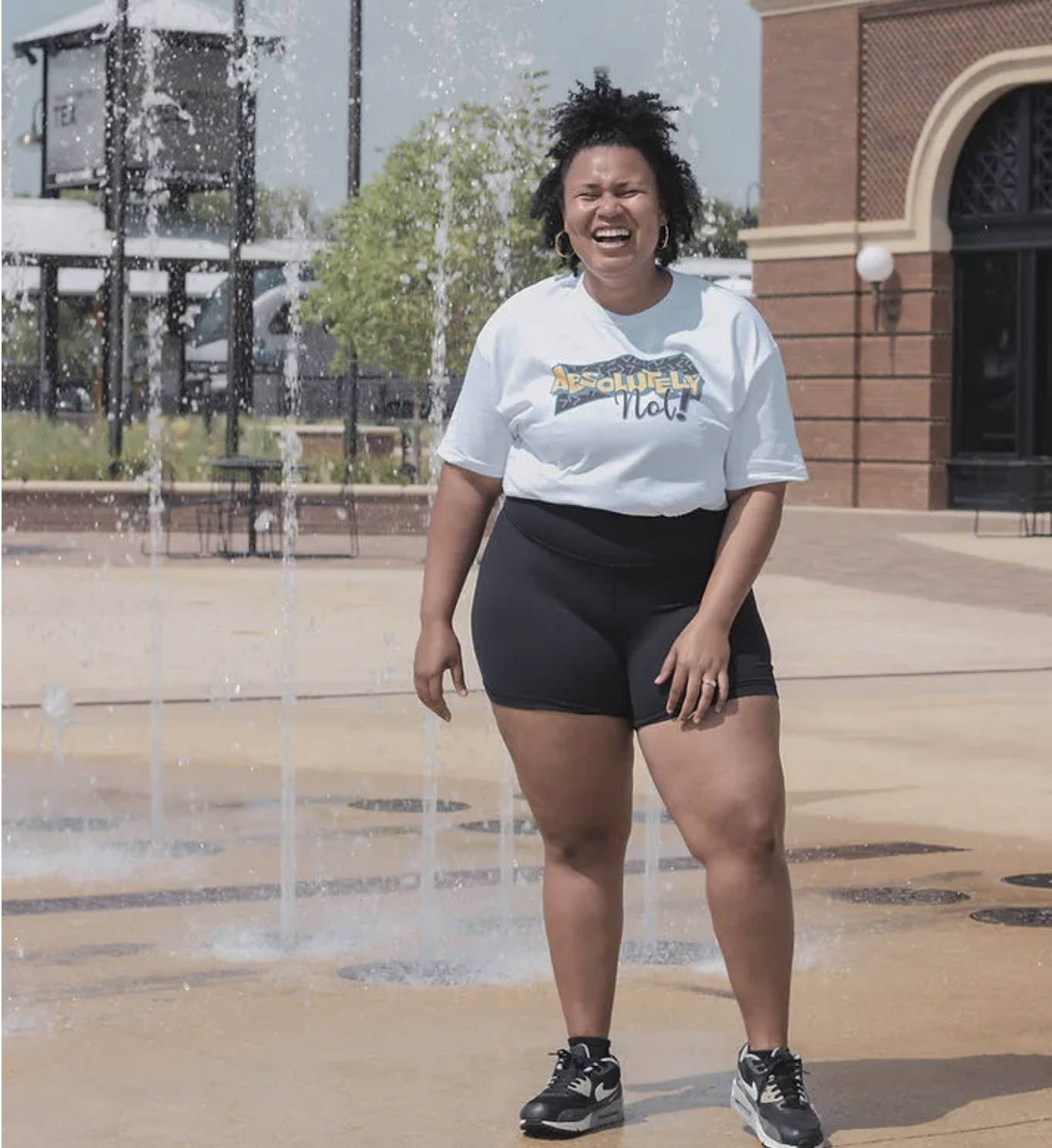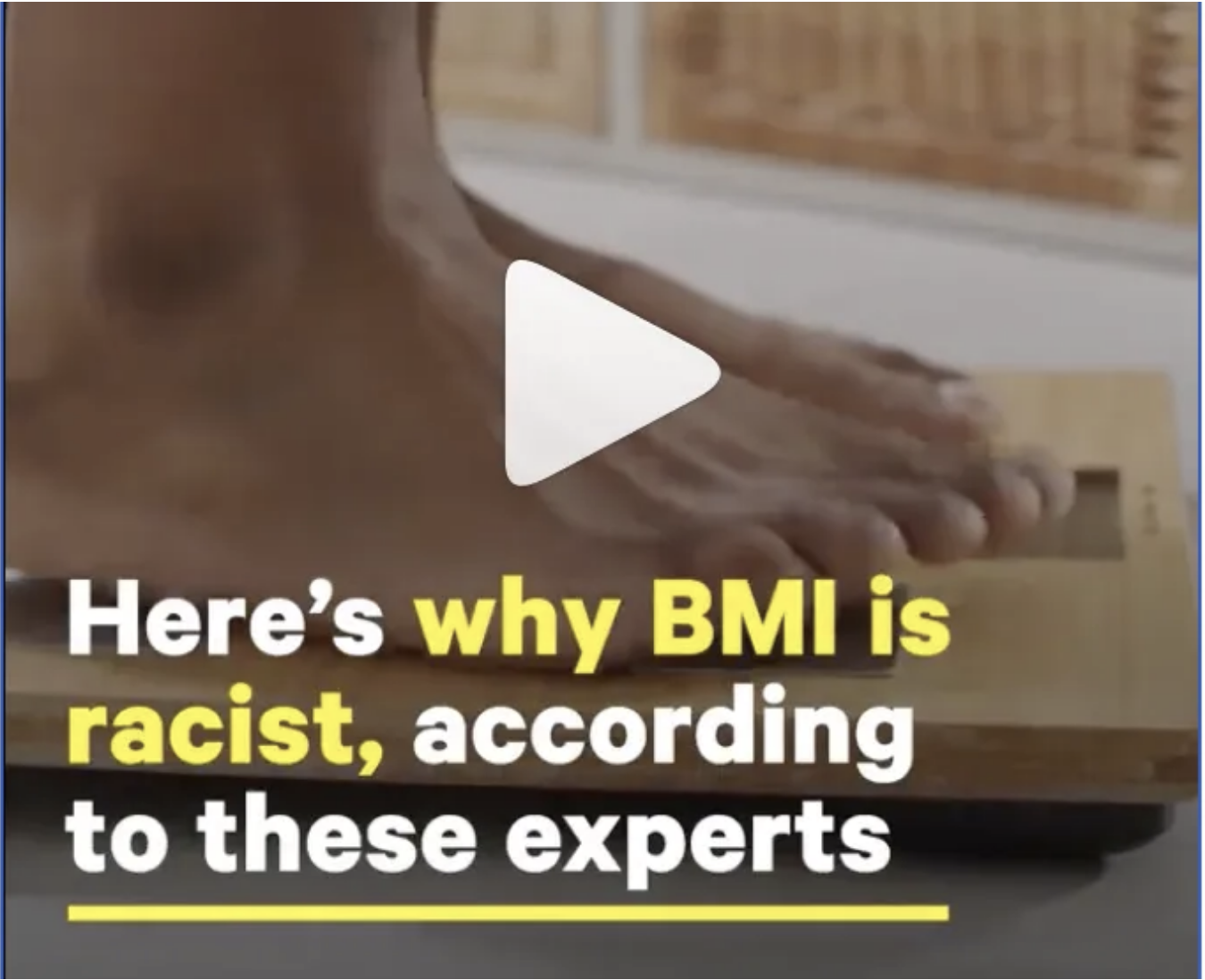“You’re Fat.”
The first time anyone ever called me fat was in 2nd grade. I was 8 years old. I started sucking in my stomach when I was 12. The binary that is “fat or skinny” is harmful. This space is dedicated to my experiences with that binary and how it’s steeped in, yupp you guessed it, White supremacy.
Who’s fat?
K stands in front of a water feature in the Texas heat.
This is a picture I posted last year on LinkedIn. The post encouraged people not to talk about other people’s bodies or compare them to others’. A handful of people called me fat in the comments.
The truth is society has taken the word fat and based it on a look rather than any qualifications to be met. Any rolls on your body? Fat. Loose skin anywhere? Fat. Bigger body? Fat. Short torso? Fat. Only one type of body is seen as “the standard” and any body that deviates is fat. These harmful messages can lead to Eating Disorders, Body Dysmorphic Disorder and Substance Use Disorders. Body Dysmorphic Disorder has the highest lifetime suicide attempt rate (35.2%).
“Being fat is unhealthy.”
Here’s why BMI is racist, according to these experts.
This thinking stems from the frequent use of the Body Mass Index (BMI). The same system used by the military. Heather Irobunda, MD, FACOG (She/Her) and Sabrina Strings, Ph.D. (She/Her) speak frequently on how this system is outdated, rooted in White supremacy and not an indicator of health or wellness.
They created a video describing the history of the system and how it still causes harm til this day. This video not only promotes self-advocacy in all spaces but also solidifies the fact that….. Fatphobia is Anti-Blackness.
“Fat is not a bad word.”
There are a lot of people reclaiming the word fat and educating others on why it should be used neutrally without negative connotation attached.
Some of my favorite people talking about this:
While I applaud these efforts, I still wish there were more words to describe our unique bodies. Our bodies deserve more freedom to be all that they are and shouldn’t have to squeeze into two boxes. I’ll continue to search for more language to describe my body and I hope you do the same.
Comfort Olagunju (She/Her) reminds people to use the same language people use to describe their bodies to describe their bodies.
Remember, don’t compare bodies, don’t label a body that isn’t yours and allow your body to exist outside the binary that is “fat or skinny.”
Thank you for reading through! Hi, I’m K Mataōtama Strohl (They/Them). I’d love to be able to continue to share stories like this but I need your help to be able to do so. Please visit my Ko-Fi page to tip what you can and gain access to my other work. You can learn more about me and my work at the link below.


